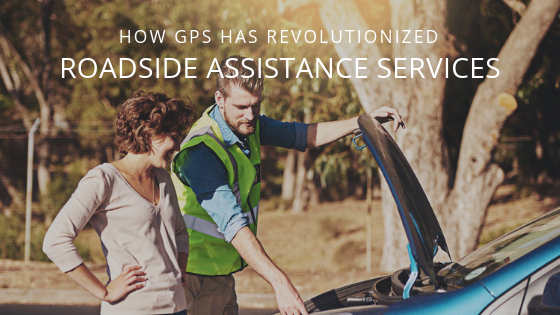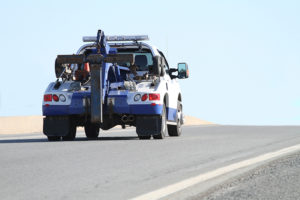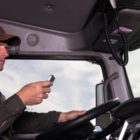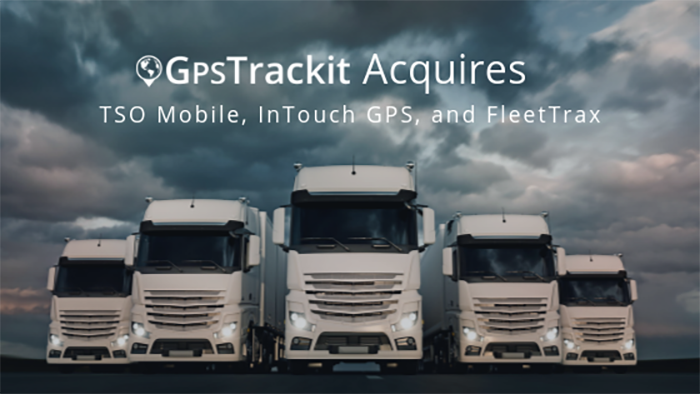Why Roadside Assistance Services Need GPS Tracking
Anyone who’s been on the road has most likely had some degree of a car-related emergency. That’s why roadside assistance companies like AAA, Allstate, and Safelite are in such high demand. The public frequently relies on their services.
Each of these companies specializes in roadside assistance for flat tires, fuel deficiency, towing, or even windshield replacement. So how do service companies like these provide incredible service so quickly and efficiently? Through the use of GPS telematics.
GPS tracking technology enables roadside assistance providers to operate to their utmost potential and provide services efficiently for their customers. Here are just a few benefits associated with the use of this technology:
1. Enhanced Safety Measures with Instant Vehicle Location
Unfortunately, drivers don’t get to choose where their vehicles break down. Best case scenario, they reach a relatively safe area and comfortably call an on-call mechanic or tow truck. Worst case, they’re left stranded on the side of the road, with nowhere safe to wait for help.
Either way, a breakdown is rarely a part of a great day. However, the response time and care of the roadside service vehicle can certainly turn things around.
A speedy response to emergency calls such as these is crucial for establishing a positive customer-care reputation. This is why having access to a GPS tracking system is so beneficial for your business.
With GPS data, dispatchers can pinpoint exactly where each vehicle in the fleet is located, and direct the closest available driver to assist the stranded vehicle. This information saves time and increases productivity.
2. Improved Customer Service with Estimated Time of Arrival Data
There is nothing worse than being stranded on a deserted highway, with no knowledge of if or when help will arrive. Or at least that’s what it feels like when you’re in that situation.
Waiting can be an excruciatingly long and stressful experience when unexpected car troubles occur. If your customer has real-time tracking data of their rescuer’s ETA removes just a bit of the anxiety that comes with mechanical failure.
Providing an accurate ETA allows customers to feel more in control of their circumstances. There is even a benefit for those customers who don’t use the various apps and technologies available to track your trucks themselves. As long as the dispatchers have access to the GPS tracking data, these customers can call in and get real-time updates on the status of their assigned driver.
3. Increase Your Company’s Bottom Line by Monitoring Vehicle Use
Aside from providing telematic location tracking data, GPS units are also able to calculate the various ways in which vehicles are used by your fleet drivers.
Use each vehicle’s GPS system to monitor how your vehicles are being used. Gather information on whether they’re driven after hours, if the vehicle has been idling for too long, or are near to reaching their maximum number of stops.
By keeping track of these aspects of vehicle use, you can protect your employees from overwork. In doing so you also protect your vehicles from accidental damage outside of company time. This helps your fleet stay in good repair and assist more people with their car troubles, which in turn positively affects your bottom line.
4. Prepared for Roadside Assistance in Real-Time
Modern fleet management systems with GPS technology allows managers to send pertinent information directly to dispatched vehicles, addressing any changes or delays in real-time.
Roadside assistance companies enabled with this technology can give their drivers updates on what is specifically needed for any job. This can include towing needs, delivery of emergency fuel, new tires to replace a flat, a jumpstart for a worn out battery, winching, and even locksmith services.
With access to this information, drivers can plan ahead and prepare for any job given to them quickly and efficiently. Preparation is key when it comes to handling emergency situations in the most effective way. If given the right information your team will be empowered to provide the best service to your customers.
Use your GPS system to maximize your services, and work better than ever before. By going this extra mile for your customers, you can rest assured that your business will profit in the roadside assistance industry, giving your company a reputation that people trust.








